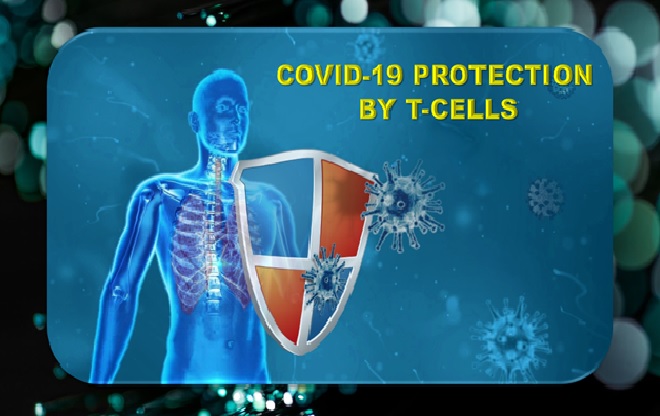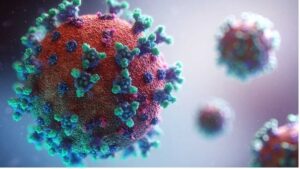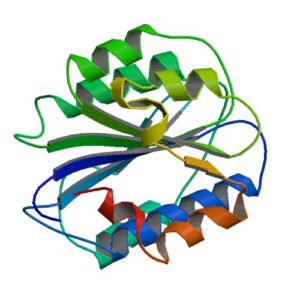CD8+ T cells highly Effective against the Coronavirus Variants (501Y.V2)

Dr. Juni Banerjee, PhD; Neucrad Health Desk, February 24, 2021
With the arrival of the new variants of coronavirus, the incidence of Covid-19 infections and deaths has reached a new level. Scientists have so far found 3 main SARS-CoV-2 variants, namely B.1.351 (also called 501Y.V2 in Africa), B.1.1.7 (in Britain) and P.1 (in Brazil). Interestingly, all these variants are highly infectious!
Once SARS-CoV-2 infects a person, the body’s immune system gets activated and the production of antibodies occurs to mitigate the infection. However, in the case of the infections mediated by the coronavirus variants, the antibodies are found to be only partially effective! Research studies demonstrated that the 501Y.V2 variant was actually partially resistant to antibodies raised against the previous coronavirus! This made the researchers wonder over the role of T cell’s vulnerability and effectivity towards the new variants.
T cells
T cell’s primary function is not to prevent the viral infection but o get rid of the infection that has already initiated. The two main types of T lymphocytes are as follows:
- Killer T cell (or CD8+ T cell): These type of T cells helps to identify and destroy the virus-infected cells.
- Helper T cell (or CD4+ T cells): These type of T cells helps to stimulate the production of antibodies as well as the killer T cells.
Of note, in response to the coronavirus variant-mediated infections, the CD8+ T cells are highly effective and helpful for lasting immunity.
Why CD8+ T cells are important for the Coronavirus variants?
The CD8+ T cells (killer T-lymphocytes) are important in deciding i) how quickly the virus-infected cells will get destroyed ii) the amount of reduction in infection-causing coronavirus, and as a result of which iii) how much the severity of disease (e.g. respiratory tract infection) will get subsided.
Interestingly, scientists indicated that the T cells are relatively more resistant towards the coronavirus variants than the antibodies. Research work by Sette and group showed that SARS-CoV-2-infected people could generate T cells capable of targeting 15–20 different fragments of the coronavirus proteins. “That makes it very hard for the virus to mutate to escape cell recognition, unlike the situation for antibodies”, Sette quoted. Moreover, the study further revealed that the T-cell responses mostly don’t get affected by mutations like 501Y.V2. In this context, Dr John Wherry (Immunologist at the University of Pennsylvania, Philadelphia) expressed his viewpoints that the fact that T cells remain active against the 501Y.V2 variant, might protect against severe diseases too!
Search for T-lymphocyte specific Coronavirus vaccines
Most of the current coronavirus vaccines have been developed using the spike protein’s epitope from SARS-CoV-2, which will produce antibodies against those specific epitopes. However, the spike protein’s epitopes are ‘variable’ i.e. their structure changes drastically due to frequent mutations. Therefore, antibodies produced in response to one coronavirus may not necessarily work against its variants. Interestingly, recent studies indicated that T-lymphocytes produced in the coronavirus infected cells can develop resistance against 15-20 different sites of the coronavirus proteins. Studies have further shown that unlike the antibodies, the T-lymphocytes can resist infection by coronavirus variant 501Y.V2 for several days.
Since T cells can target some of the stable viral proteins (that mutates less than the spike proteins) expressed inside the infected cells, researchers are trying to develop better, effective and next-generation coronavirus vaccines that can stimulate T cells and work against the new variants of the coronavirus too.
References:
- Ledford H. How ‘killer’ T cells could boost COVID immunity in face of new variants. Nature. 2021 Feb;590(7846):374-375. doi: 10.1038/d41586-021-00367-7. PMID: 33580217.
- Shah VK, Firmal P, Alam A, Ganguly D, Chattopadhyay S. Overview of Immune Response During SARS-CoV-2 Infection: Lessons From the Past. Front Immunol. 2020 Aug 7;11:1949. doi: 10.3389/fimmu.2020.01949. PMID: 32849654; PMCID: PMC7426442.
- Chen Z, John Wherry E. T cell responses in patients with COVID-19. Nat Rev Immunol. 2020;20(9):529-536. doi:10.1038/s41577-020-0402-6
- DiPiazza AT, Graham BS, Ruckwardt TJ. T cell immunity to SARS-CoV-2 following natural infection and vaccination [published online ahead of print, 2020 Oct 23]. Biochem Biophys Res Commun. 2020;538:211-217. doi:10.1016/j.bbrc.2020.10.060
- Cox RJ, Brokstad KA. Not just antibodies: B cells and T cells mediate immunity to COVID-19. Nat Rev Immunol. 2020;20(10):581-582. doi:10.1038/s41577-020-00436-4









